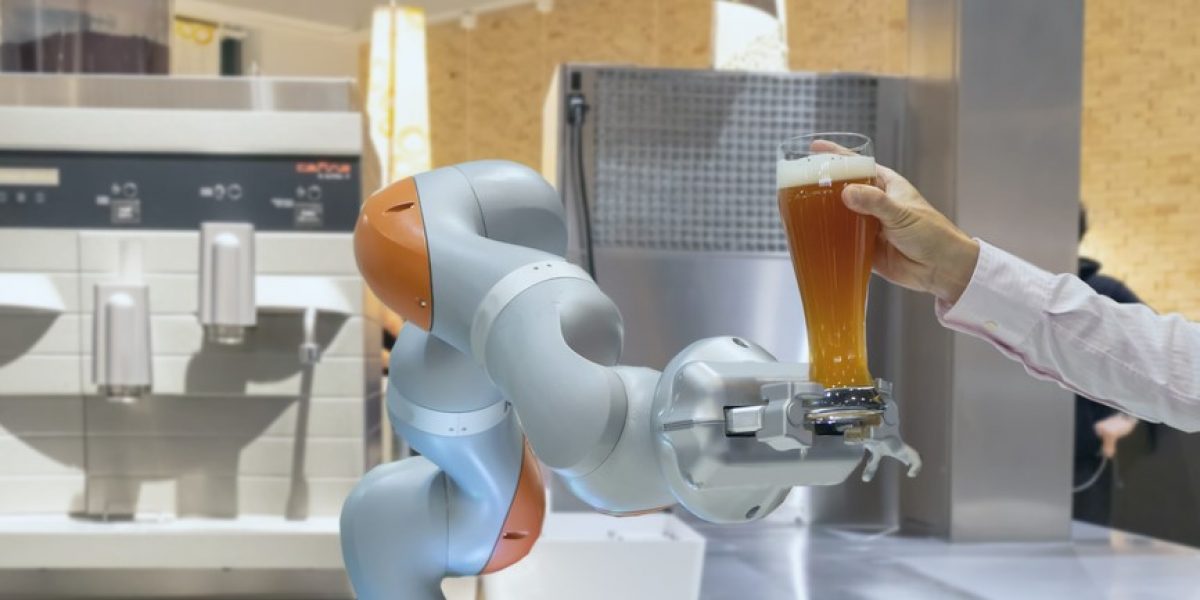The bustling streets of Las Vegas have become a testament to the inexorable march of technology. In every corner of this vibrant city, machines have seamlessly assumed roles once held by humans. From hotel check-ins to personalized dining recommendations, and even the art of mixing cocktails, artificial intelligence (AI) and automation are redefining the way work is done. This transformation is not just limited to the service industry; it extends to white-collar professions as well. With AI on the rise, the city of Las Vegas finds itself at a crossroads, where the need to reduce labor costs intersects with the quest for economic resilience and adaptation. This article explores the profound impact of AI on Las Vegas and the strategies being adopted to navigate this evolving landscape.
Read also: Honor’s Ambitious Leap into the Global Foldable Smartphone Market
Automation’s Ubiquity in Las Vegas
Las Vegas, a city that thrives on tourism and hospitality, is witnessing automation’s pervasive influence. Check-in kiosks have replaced the traditional hotel front desk, text-bots dispense restaurant recommendations instead of concierges, and even bartenders have mechanical counterparts. The prevalence of AI-driven automation is unmistakable, with machines steadily assuming tasks once considered the domain of human workers.
The Economic Inflection Point
Las Vegas’ economy, heavily reliant on tourism and hospitality, now stands at a critical inflection point. Companies are increasingly turning to AI to curtail labor costs, prompting a seismic shift in the city’s economic landscape. As technology becomes an integral part of business operations, the challenge lies in balancing economic development, community resilience, and strategies that adapt to a world where certain jobs may no longer exist.
Diversification: A Necessity for Survival
John Restrepo, principal at RCG Economics in Las Vegas, advocates for diversification as a means to reduce dependence on tourism and hospitality. To withstand the impact of automation, Las Vegas must transition towards highly skilled occupations less susceptible to AI replacement. Achieving this balance is crucial for long-term resilience in the face of technological disruption.
Labor Unions and AI Protections
The Culinary Union, representing 60,000 service and hospitality workers, is closely monitoring the AI-driven changes in Las Vegas. In negotiations for a new contract, they seek protections against AI displacing jobs. Their demands include a six-month warning for new technology implementations and free training for workers to adapt to these changes. The union is determined to safeguard workers from the perils of technological unemployment.
The Human Touch and AI
While AI and machines continue to make inroads, some workers believe that certain human jobs remain irreplaceable. The personal touch, unique experiences, and the ability to connect with customers are aspects where machines fall short. Service workers emphasize the enduring value of human interaction and are confident that labor unions will secure their roles in the evolving landscape.
Beyond Service Jobs: Impact on White Collar Work
AI’s reach extends beyond service roles; it is poised to impact white-collar jobs, including fields like accounting and data entry. While some roles may become more productive, others could face elimination. Simultaneously, AI is expected to create entirely new job opportunities, heralding a transformative era in the world of work.
Preparing for the AI Revolution
As Las Vegas anticipates the AI revolution, city officials are taking proactive steps. Initiatives like the local Chamber of Commerce’s panel on AI in August signify a commitment to educate and prepare the workforce. Entrepreneurs like Tony Yee, who runs a moving company, recognize AI’s potential and seek to harness it to enhance their businesses, underlining the importance of staying ahead in this technological revolution.
The emergence of AI in Las Vegas paints a vivid picture of a city in transition. Automation’s impact, from service jobs to white-collar professions, is undeniable. However, amidst this transformation, the city and its workforce are determined to adapt, innovate, and thrive in the age of AI.






